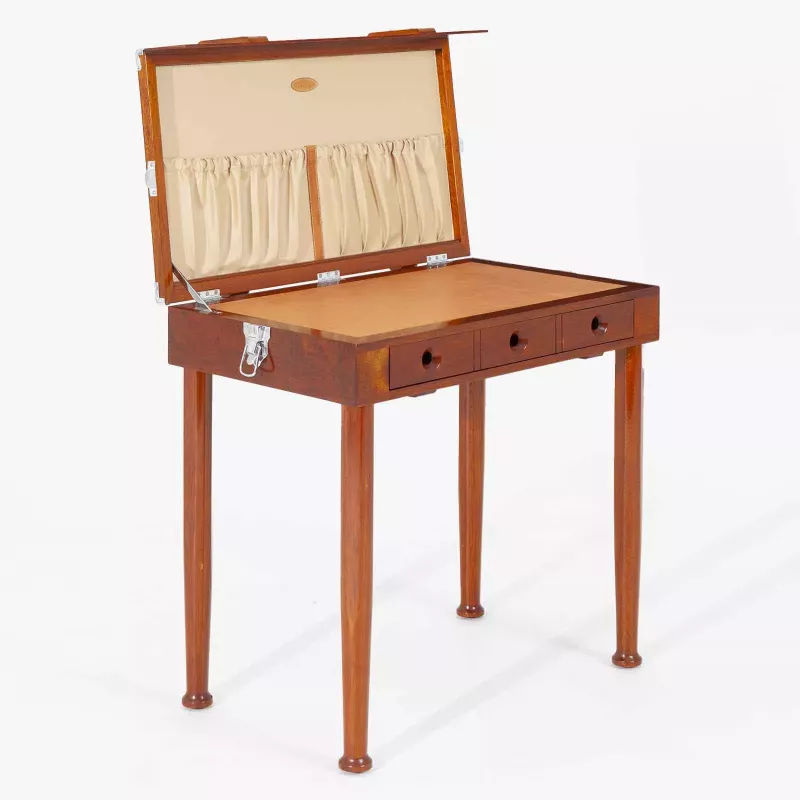VICTOR HUGO - Travel desk
Reference : STAR-7040
Dimensions : W70 x D43 x H73 cm
An essential travel companion, once assembled and opened, this elegant trunk transforms into a desk. Your letters, sketches or architect's plans will be well kept here, you just have to close it to be ... incognito.

Custom manufacturing

Premium materials

Traditional assemblies

Exceptional finishes
Product informations
Features
- Two pockets for storage
- One large front drawer
- Four legs that fit inside the top
- Desk blotter
Finishes
- Wood varieties : prunus avium (cherry), Entandrophragma cylindricum (sapelli), Entandrophragma utile (sipo), Juglans nigra (black walnut)
- Rosewood varnish finish
- Chromium-plated brass hardware : leather carrying handle holders, flushed corners,
- Full grain leather : desk blotter, carrying handle, Starbay logo
- Synthetic fabric : pockets and top underside
- Engraved and inked Starbay bone logo
Technical information
- Easy assembly of top and legs
- Parcel : L75 x P50 x H22 cm / 19kg
Maintenance tips
- Remove dust with an anti-static or slightly damp cloth
- Do not apply wax to avoid clogging the varnish
- Avoid cleaning with products that could potentially be abrasive to varnish
- Always protect surfaces before applying liquids or heat
- Nourish leather with body milk (for baby ideally)

Secure
payment

Made-to-measure
delivery

Customer service
and workshops in France

Click
& Collect
You may also like
Previous
Next




























